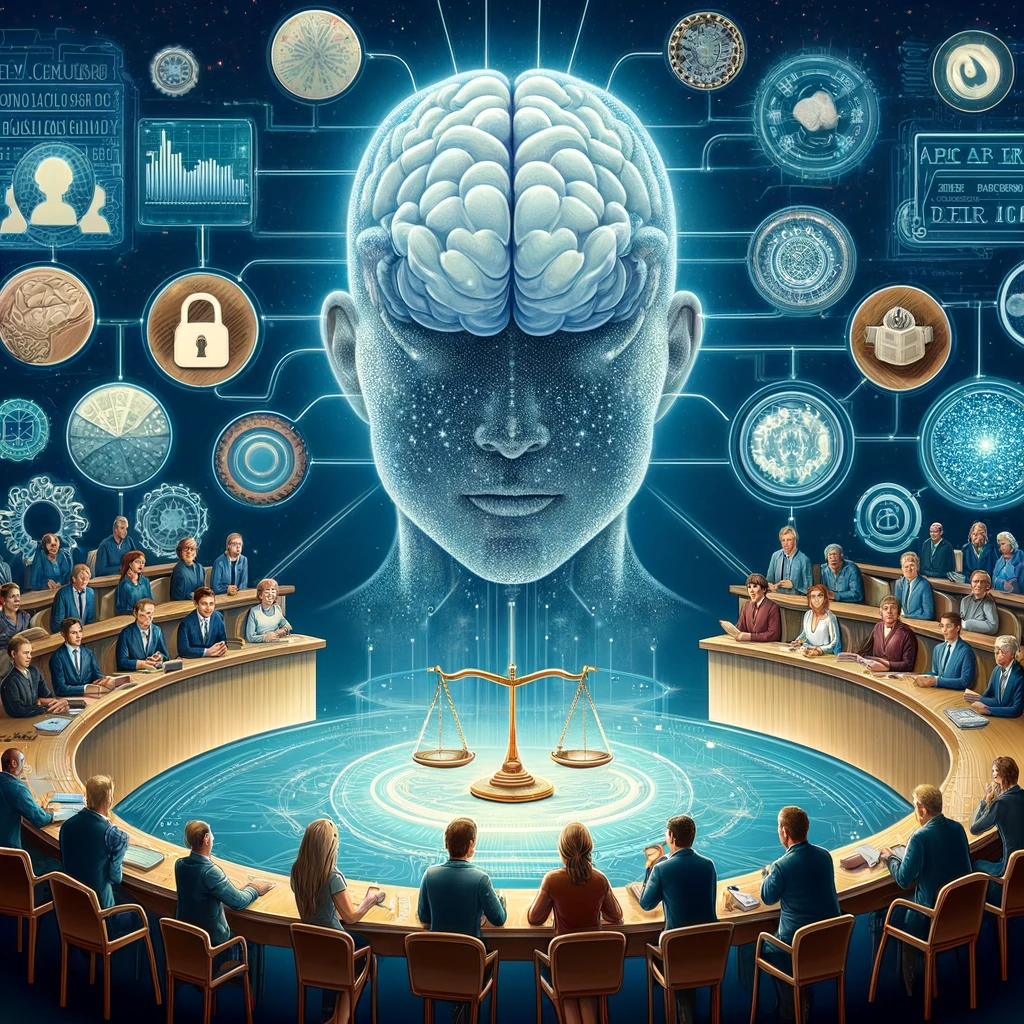
The Emerging (and Uncharted) World of AI Ethics, Laws & Regulations
Since ChatGPT has become available to the public, the ethical considerations of Artificial Intelligence have surged. From understanding the significant ramifications of privacy, accountability and bias, to the legal landscape of plagiarism and intellectual property, it is important that we educate ourselves on the intersection of humanity and machine.
The Big Question
What happens when machines make decisions without human intervention?
Let’s rewind for a moment and look at a long-held ethical debate among philosophers, ethicists, and now pioneers of Artificial Intelligence – the Trolley Problem.
The Trolley Problem
This intriguing thought experiment delves into the intricate ethical considerations that arise when one faces a dilemma of choosing between two options, each bearing grave consequences.
The Trolley Problem poses a question that requires a split-second decision.
You’re standing at the controls of a speeding streetcar, hurtling towards a large group of people tied to the tracks.
You have a split-second decision to make.
Should you switch to an alternative track where only one person is tied to the track; sacrificing the individual to save the group?

This problem raises profound questions about the ethics of decision-making.
- Do you prioritise minimising overall harm, even if it means intentionally causing harm to one individual?
- Or do you adhere to the principle of non-interference, allowing events to unfold without intervention?
In the context of AI, the Trolley Problem serves as a way to explore the ethical considerations of autonomous decision-making.
- When machines are entrusted to make choices, what principles should guide their actions?
- How do we ensure that these decisions align with societal values and promote fairness and human wellbeing?
These debates challenge us to reflect on the implications of granting AI systems the power of decision-making and the responsibility that comes with it.
Can Machines Make Autonomous Decisions?
As machines evolve to become smarter and more sophisticated, the possibility of them making decisions without human intervention becomes more feasible and demands our attention.
Machines can make autonomous decisions to some extent, but there are limitations and considerations to be aware of. While Artificial Intelligence systems have demonstrated impressive capabilities in decision-making tasks, AI still requires oversight and human involvement.
AI systems are designed to process and analyse vast amounts of data, learn patterns, and use that information to make decisions. However, the decisions made by machines are based on algorithms and models created by humans, and operate within predefined parameters that humans have set.
Machines cannot understand context, emotions, and ethical nuances in the same way humans do. Therefore, complete autonomy, in the sense of independent decision-making without any human oversight or intervention, is not yet achievable.
It is worth noting that there is ongoing research to explore the concept of delegation behaviour, where individuals transfer decision-making power to AI systems and fully entrust them to make decisions on their behalf. However, the extent to which such delegation can be effectively and ethically implemented is an area of active exploration.
Society faces questions regarding accountability, fairness, transparency, and the potential risks associated with handing over moral decision-making power to machines.
AI Ethical Concerns
As of December 2023, these are some of the ethical concerns of Artificial Intelligence.
They highlight the need for careful consideration, regulation, and ongoing dialogue to ensure that AI systems are developed and deployed in a manner that prioritises privacy, fairness, transparency, accountability, and the wellbeing of individuals and society.
It will be fascinating to track the progression of these issues as society embraces AI, and becomes more comfortable relying on it.

Privacy and Data Protection
AI systems often rely on vast amounts of personal data to operate effectively. This raises concerns about the collection, storage, and use of sensitive information, as well as the potential for unauthorised access or breaches of privacy.
Bias and Fairness
AI systems can encode and perpetuate biases from the data they are trained on, leading to unfair or discriminatory outcomes. This can affect decisions in various domains, such as hiring practices, criminal justice, and resource allocation.
Transparency and Explainability
AI algorithms can be complex and difficult to understand, making it challenging to explain the rationale behind their decisions. Lack of transparency and explainability raises concerns about accountability, trust, and the ability to detect and address potential errors or biases.
Accountability and Responsibility
As AI systems make autonomous decisions, determining who is accountable for any harm caused by those decisions becomes a crucial concern. The allocation of responsibility and liability for AI-related errors or accidents is still an evolving area of discussion.
AI Impact on Employment and Workforce
AI technologies have the potential to automate various tasks and jobs, raising concerns about the displacement of workers and societal impacts, such as income inequality and job polarisation. There is a very real concern that AI will take people’s jobs.
AI Regulations & Laws in Australia
The Australian regulatory landscape for laws on Artificial Intelligence is still evolving, and there is currently no specific regulatory body dedicated solely to AI. However, several entities are involved in shaping AI regulations and guidelines in Australia.
One key player is the Australian Government, which has shown an intention to regulate AI and address potential gaps in existing laws. The government is considering adopting AI risk classifications, similar to those being developed in Canada and the EU.
Another important resource is Australia’s Artificial Intelligence Ethics Framework, published by the Department of Industry, Science, Energy, and Resources. This framework outlines principles and guidelines to ensure that AI systems in Australia are developed and used ethically, focusing on human, societal, and environmental well-being, as well as human-centric values.
Additionally, research institutions and organisations like the Human Technology Institute (HTI) at the University of Technology Sydney (UTS) are involved in exploring the future of Artificial Intelligence regulation in Australia. HTI is conducting research projects and collaborating with civil society, industry, and the government to determine how Australia should regulate AI as it becomes more prevalent in society.
While these entities play a role in shaping the regulatory framework for AI in Australia, it is important to note that the regulatory landscape is still evolving, and further developments are expected as the technology progresses and the societal impact of AI becomes more apparent.
The Singularity
AI ethics, laws, and regulations form the moral compass guiding the responsible development and deployment of Artificial Intelligence. The intention is to maximise the benefits AI can offer society while minimising negative impacts on the humans that make up that society.
Machines are and will continue to be programmed to make autonomous decisions within defined parameters, relying on human oversight, context, and constraints. However, humans are experts at evolving, so will that innate evolutionary ability be programmed into machines? What are the implications of AI achieving singularity?
Oxford Dictionary defines Singularity as:
A hypothetical moment in time when artificial intelligence and other technologies have become so advanced that humanity undergoes a dramatic and irreversible change.
Do we not trust machine autonomy because we don’t trust ourselves?
Forward Thinking will continue to update you on the evolving landscape of AI ethics and responsible AI practices. We invite you to explore our resources and stay curious.

